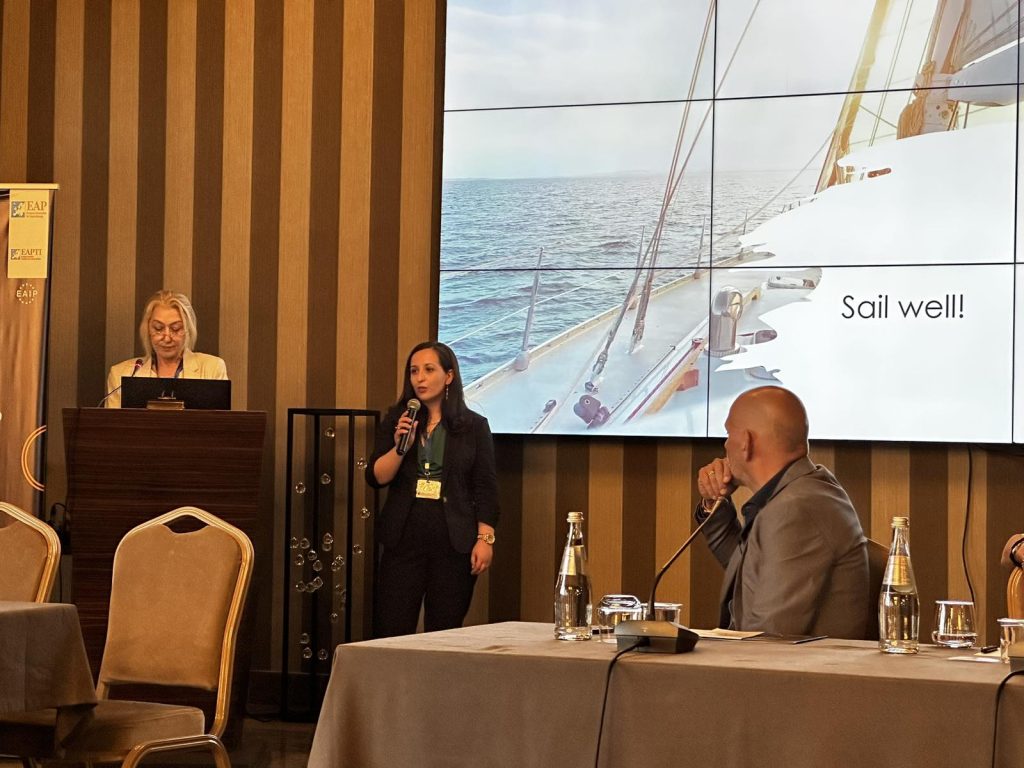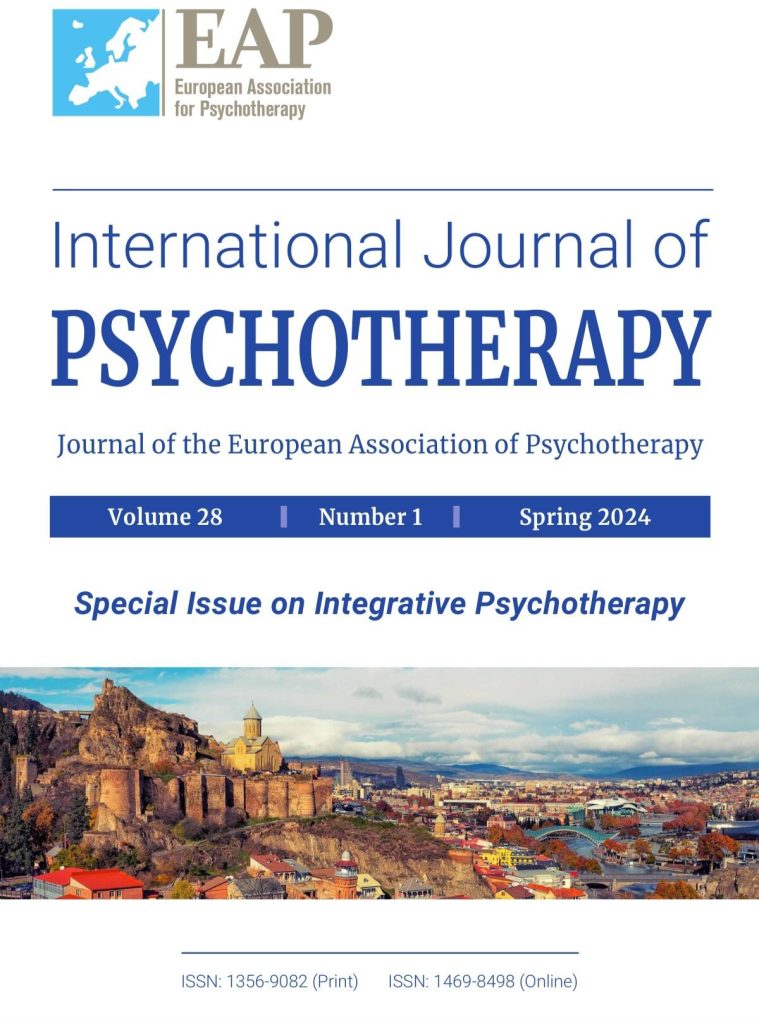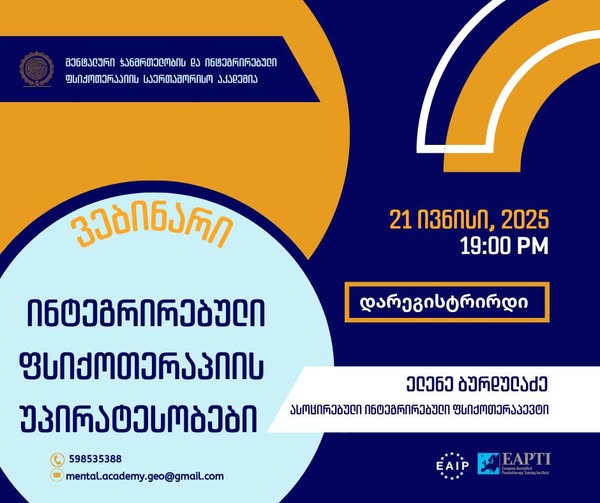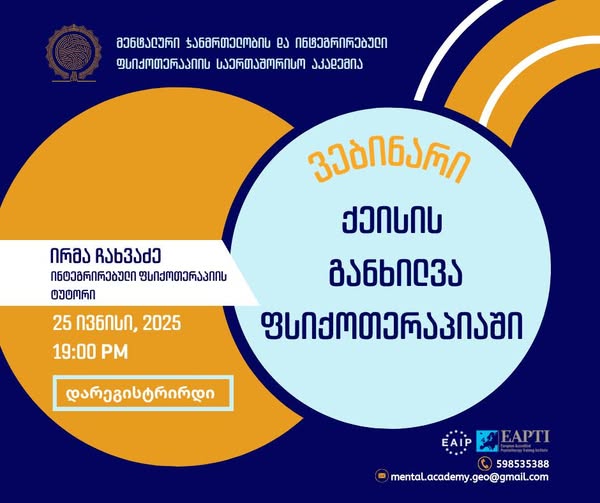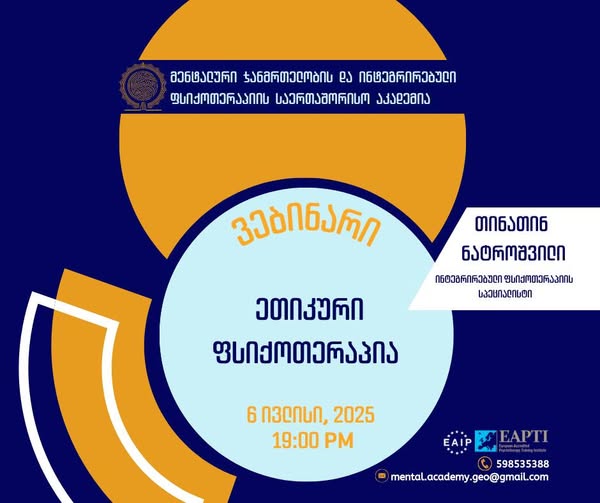The course will present a model guided by the inherent human need/need for relationship, as well as, in certain cases, the need for contradictory individuation as a lifelong challenge.
Starting from the integrated comparative theory of personality, we will explore:
– How we make sense of the phenomenology of client action
access?
- How can we understand the essential challenges of life,
What underlies the pathology of personality disorders?
- What are more functional coping and adaptation mechanisms
For a different and different character style?
- How to approach these issues with compassion and empathy in psychotherapy
in the process?
In the process of relationship with the client, from the first telephone contact to the last
Before the session, we create a shared narrative.
– What information do these stories provide specific to our client?
About the tragedy of development?
– How do we build a consistent comparative theoretical foundation that helps in diagnosis, psychotherapy planning, and subsequent clinical intervention?
Several integrative models will be used as examples of a comparative approach to assessment and diagnosis. Participants will reflect on their practice with clients in small groups.
Presentation and supervision of cases will be possible. Objectives and program of the training course:
– Clear understanding of integrated personality theories;
– Understanding the framework of the integrated comparative approach to personality;
– Understanding the topics included in the integrated framework:
a. attachment theory;
b. object relation theory;
c. Self-psychology and the theory of intersubjectivity;
d. Gestalt therapy;
e. character analysis;
f. Contemporary developmental and neurobiological theories, including interpersonal neurobiology.
Clinical knowledge and skills:
- phenomenological integrated comparative approach to personality
understanding
– Ability to use this approach in clinical work with clients:
- Evaluation of the phenomenological interdisciplinary approach
using
– Diagnosis, differentiation of personality styles and disorders according to three clusters (A, B, C);
– Drawing up a psychotherapeutic treatment plan based on assessment and diagnosis and a deep understanding of the given parameters:
– What main life factors led to the formation and maintenance of character and/or personality disorder?
– What are the more functional coping and adaptation mechanisms for each personality type?
– How to be and show compassion and empathy in the process of psychotherapy?
– Participants will get to know the guidelines of practical work with other and other clients and will practice specific clinical skills during the seminar process;
– They will have the opportunity to present their own cases for consideration, to undergo supervision.
After completing the course, students will be able to:
1. Formulation of a coherent vision of the person;
2. An argumentative explanation of the integration of the selected development theories in one's own approach to personality assessment and diagnosis;
3. Have an understanding of the phenomenological integrated comparative approach to assessment, diagnosis and psychotherapy planning and a clear vision of what information it provides for their clinical practice;
4. Will be able to reflect on clients in terms of an integrated framework and use it in their own clinical work.
Course structure:
Module I:
– Presentation and framework of the integrated model;
- personality disorders A (paranoid, schizoid and schizotypal) and
Presentation of C (addictive, dependent and obsessive-compulsive) clusters.
Module II:
– Further in-depth research and application of the integrated framework;
– Presentation of cluster B personality disorders (borderline and narcissistic).
Training-certification course format:
Teaching, personal reflection, sharing in small groups, case study, supervision.
It is recommended to go through both modules as they are a whole.


